Published by Rowman & Littlefield Publishers, Inc.
A wholly owned subsidiary of The Rowman & Littlefield Publishing Group, Inc.
4501 Forbes Boulevard, Suite 200, Lanham, Maryland 20706
http://www.rowmanlittlefield.com
Estover Road, Plymouth PL6 7PY, United Kingdom
Copyright 2010 by Rowman & Littlefield Publishers, Inc.
All rights reserved. No part of this book may be reproduced in any form or by any electronic or mechanical means, including information storage and retrieval systems, without written permission from the publisher, except by a reviewer who may quote passages in a review.
British Library Cataloguing in Publication Information
Library of Congress Cataloging-in-Publication Data Available
Anapol, Deborah.
Polyamory in the 21st century : love and intimacy with multiple partners / Deborah Anapol.
p. cm.
Includes bibliographical references and index.
ISBN 978-1-4422-0021-0 (cloth : alk. paper)ISBN 978-1-4422-0023-4 (electronic)
1. Non-monogamous relationships. 2. Sexual ethics. 3. Open marriage. 4. HomosexualityPsychological aspects. I. Title. II. Title: Polyamory in the twenty first century.
HQ980.A536 2010
306.84'23--dc22
2010014094
 The paper used in this publication meets the minimum requirements of American National Standard for Information SciencesPermanence of Paper for Printed Library Materials, ANSI/NISO Z39.48-1992.
The paper used in this publication meets the minimum requirements of American National Standard for Information SciencesPermanence of Paper for Printed Library Materials, ANSI/NISO Z39.48-1992.
Manufactured in the United States of America.
Printed in the United States of America

WHAT IS POLYAMORY?
P olyamory is an invented word for a different kind of relationship. Poly comes from Greek and means many. Amory comes from Latin and means love. Mixing Greek and Latin roots in one word is against the traditional rules, but then so is loving more than one person at a time when it comes to romantic or erotic love.
The word polyamory was created in the late 1980s by Morning Glory and Oberon Zell. This couple, who have been married since 1974, continue to enjoy a deeply bonded open relationship that has morphed in many directions over the years, including a live-in triad lasting ten years and a six-person group marriage that recently dissolved after ten years.
The Zells did not invent the lifestyle, which has come to be known as polyamory, nor did I, though we are among a handful of pioneers who have mapped this new territory and thought deeply about its implications over the past thirty some years. I use the word polyamory to describe the whole range of lovestyles that arise from an understanding that love cannot be forced to flow or be prevented from flowing in any particular direction. Love, which is allowed to expand, often grows to include a number of people. But to me, polyamory has more to do with an internal attitude of letting love evolve without expectations or demands that it look a particular way than it does with the number of partners involved.
Few people would deny that theres been a significant shift in the way marriage and intimate relationships have evolved over the past few decades. Most observers agree that traditional marriage is floundering. While some couples still manage to thrive, they are in the minority. Rising divorce rates, declining marriage rates, and the skyrocketing incidence of infidelity on the one hand and sexless marriage on the other have many people concerned about their prospects for marital bliss and newly curious about alternatives.
More and more people find themselves facing the discovery that lifelong monogamy is more of a mirage than a reality. At the same time, most experts on marriage, family, and sexuality continue to write and speak as if all extramarital sex falls into the category of infidelity. Sometimes its acknowledged that an affair may inadvertently have a positive impact on a troubled marriage, but as far as the authorities are concerned, polyamory or consensual inclusive relationships do not exist. End of conversation. The losers are those adventurous souls struggling to make sense of their ever-changing relationships. We are all understandably confused by unspoken and uncharted shifts in the ways we mate, but trying to deny this is happening will not help us adapt to the changes already under way, nor will it help us evolve new ways of relating that are truly appropriate for the twenty-first century.
Its often been noted that changes in belief systems frequently lag behind changes in behavior, and nowhere is this more evident that in the realm of erotic love. Meanwhile, people are voting with their search engines. Fueled by the power of the newly expanded Internet, the concept called polyamory has spread like wildfire. A recent Google search turned up over 1.8 million entries. In less than two decades, the use of and the meanings attributed to this newly invented word have taken on a life of their own. These days, polyamory has become a bit of a buzzword and often means different things to different people. So if youre perplexed by polyamory, youre not alone. Some people are still confusing polyamory with polygamy , which technically means to be married to more than one person, regardless of gender, but which has come to imply the patriarchal style of marriage in which a man has more than one wife while the women are monogamous with their shared husband.
The Oxford Dictionary defines polyamory as (1) The fact of having simultaneous close emotional relationships with two or more other individuals, viewed as an alternative to monogamy, esp. in regard to matters of sexual fidelity; (2) the custom or practice of engaging in multiple sexual relationships with the knowledge and consent of all partners concerned. These two alternate definitions are themselves a source of confusion for many. Jenna had the impression that polyamory refers to the simultaneous close emotional relationships with two or more others and, when she got involved with Gary, was intrigued by the prospect of exploring how this worked. But when Gary described himself as polyamorous, he had the second definition in mind and was intent on engaging in multiple sexual relationships regardless of the degree of emotional closeness. Neither was aware that they had very different expectations about their relationship, and both were shocked and dismayed when they discovered they were operating according to different game plans. Resentment toward the other for having a different agenda was quick to undermine their budding romance.

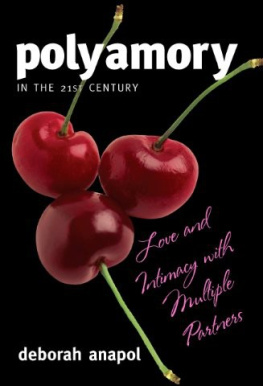

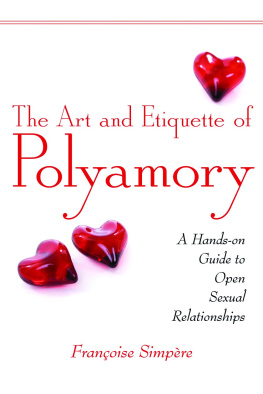
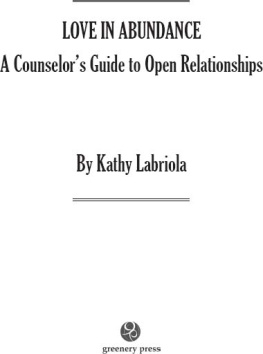
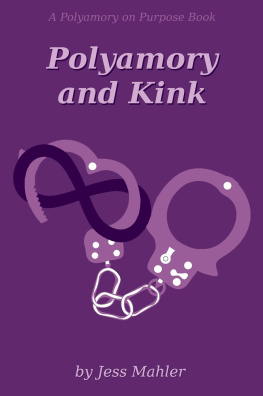
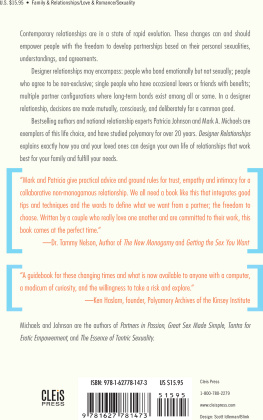
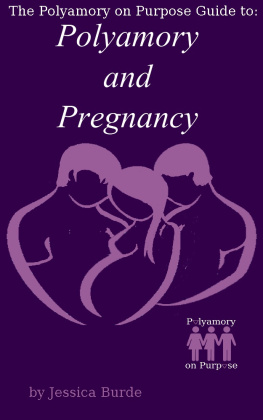
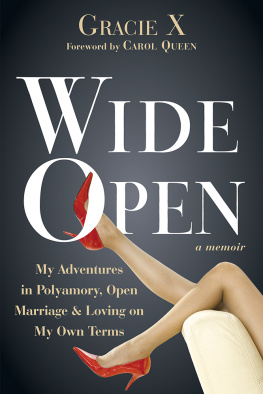
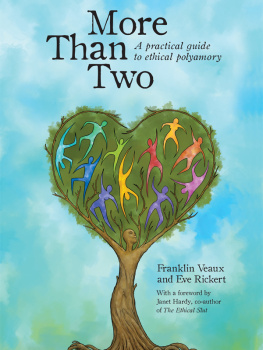
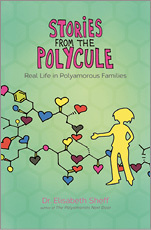
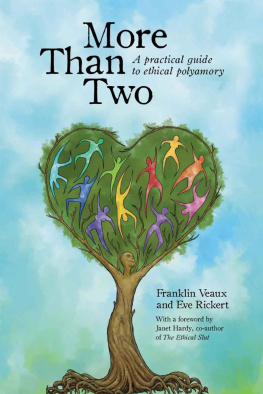


 The paper used in this publication meets the minimum requirements of American National Standard for Information SciencesPermanence of Paper for Printed Library Materials, ANSI/NISO Z39.48-1992.
The paper used in this publication meets the minimum requirements of American National Standard for Information SciencesPermanence of Paper for Printed Library Materials, ANSI/NISO Z39.48-1992.








